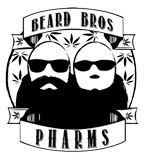
Many are celebrating the news that just dropped that the FDA’s Center for Drug Evaluation and Research has approved the legal use of CBD for patients ages 2 and up who suffer from very specific conditions: Dravet Syndrome (DS) and Lennox-Gastaut Syndrome (LGS), two severe forms of childhood-onset epilepsy.
DS and LGS have proven to be incredibly difficult to treat, often requiring a cocktail of different synthetic prescription drugs that all too often fail to alleviate the symptoms.
Of course, CBD–based treatments have shown incredibly positive results in many of these cases, but the FDA does not have the authority to unleash the power of the plant on its own.
So now the release to the public hinges on a pending decision by the DEA who will have to take CBD off of Schedule I of the Controlled Substances Act in order to allow CBD to hit the market, and pharmacy shelves, nationwide.

The version of CBD that is being proposed is a lab-grade pharmaceutical-grade drug called Epidiolex, created in the United Kingdom by a company called GW Pharmaceuticals.
GW Pharma operates overseas, away from FDA scrutiny most of the time, but now has their blessing to bring the product to the States… if the DEA will get out of the way. They grow their own cannabis in what they call “specialized glass houses” and they extract the CBD from that material.
This is important – they are not trying to push a hemp-derived CBD treatment through this process, and that detail could have far-reaching consequences.
Currently, ironically, perhaps criminally, CBD still sits on Schedule I alongside heroin as one of the DEA’s most “deadly” drugs based on “potential for abuse”, due to ignorance and the fact that it is often derived from cannabis.
If the DEA backs down, moves CBD down to Schedule IV, and allows this drug to go to market, they will finally have to address the flaws in the Controlled Substances Act for the first time in our memory. If they do not, they just sentenced countless kids to a shortened life full of painful seizures.
GW Pharma says they expect a decision from the DEA within the next 90 days.
What they have not announced yet is a price for Epidiolex, but it is expected to run somewhere between $35,000-$50,000 per year for the treatment course, an unsustainable number for most families but great news for shareholders who have seen the value of the company’s stock rise 50% in the past year since full-scale clinical trials began. It is expected to eclipse a $1 Billion valuation by 2021.
It is exactly because of these exorbitant costs that the medicine will only be available to those suffering from two very specific conditions because those are the only ones that insurance companies are willing to cover for now.
This is America.
So what is the difference between Epidiolex and the proven, trusted brands of CBD treatments already on the shelves of your favorite dispensary, besides a much larger price tag?
At this point, at least when compared to other cannabis-derived CBD products, there doesn’t appear to be one which leads skeptics to wonder how popular the prescription version will be compared to the relatively easy to obtain options that have been here for years in states with lax weed laws.
GW Pharms tries to portray itself as a small fish in a big pond in the pharmaceutical industry – quick to compare their staff of 200 employees to that of say, Phizer, who might employ 90,000 – and they certainly are.
But in the cannabis industry they are a giant, and their corporate approach turns many people off. They have been accused of lobbying cannabis-friendly states to ensure that only FDA-approved products gain favor from any new CBD laws.
Last year, Steve Schultz, GW’s vice president of investor relations told The Cannabist, “Our objective, simply, is to make an FDA-approved medicine, purified CBD medicine available for patients who would be looking at an additional option,” he said. “Whatever is available at dispensaries is really not even an element of our consideration. Our goal is to just add to those options that are available.”
Regardless of how you may feel about GW Pharma and their business model, they have succeeded in forcing the DEA to reexamine the antiquated Controlled Substances Act. Hemp-derived CBD products can absolutely be effective and deserve a place on any wellness shelf, but we cannot overstate the importance of including cannabis in this process.
With so much public support in the US for cannabis legalization – not just CBD legalization – the time is right for a major overhaul.
Read more at Beard Bros Pharms.
















